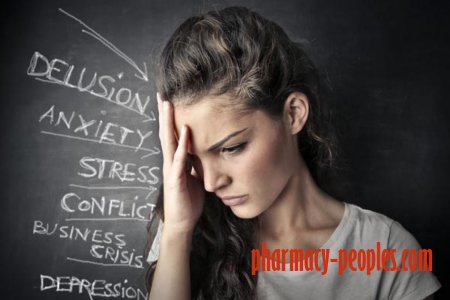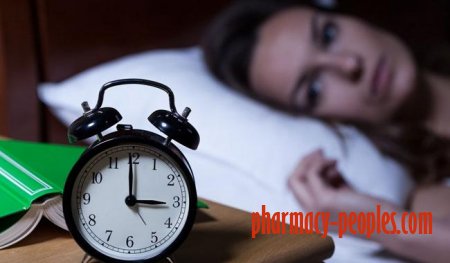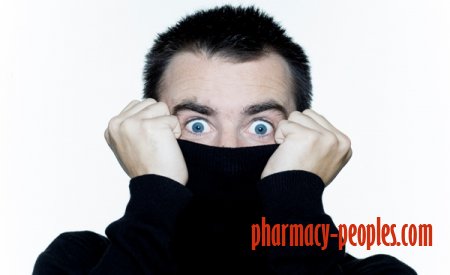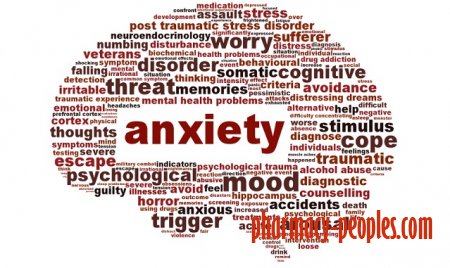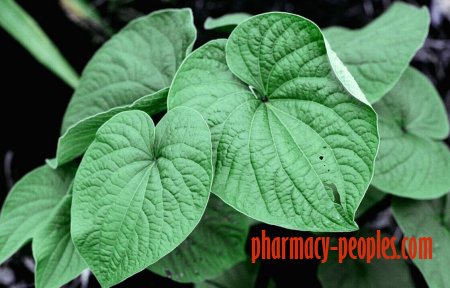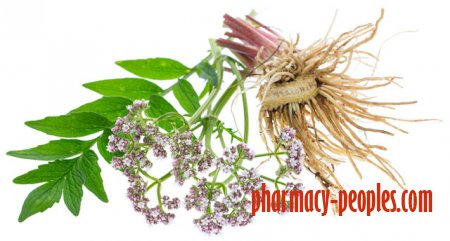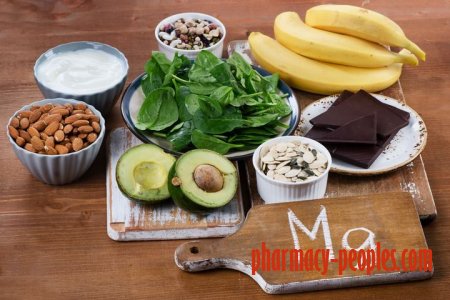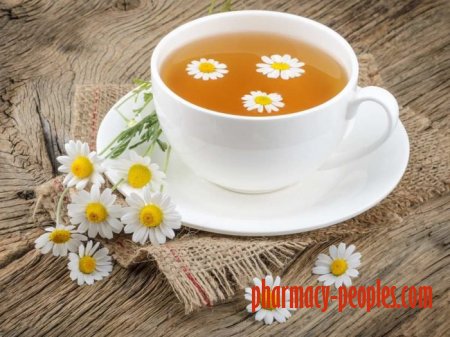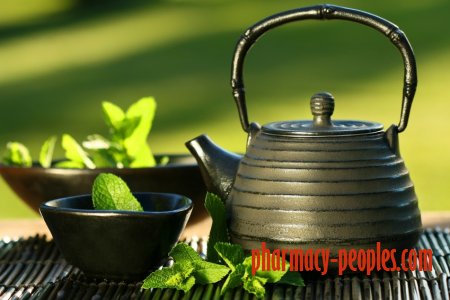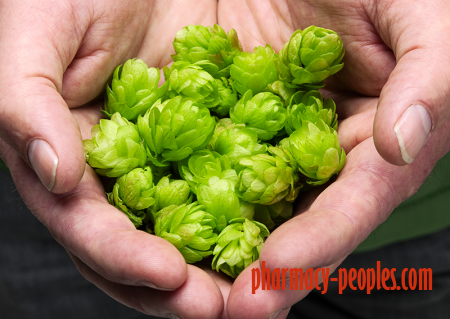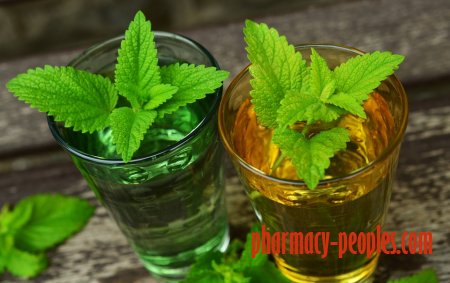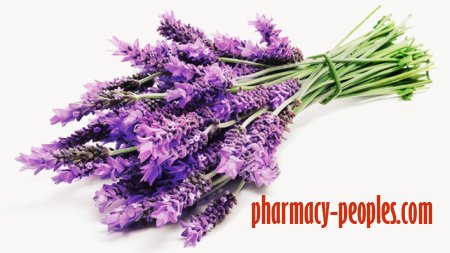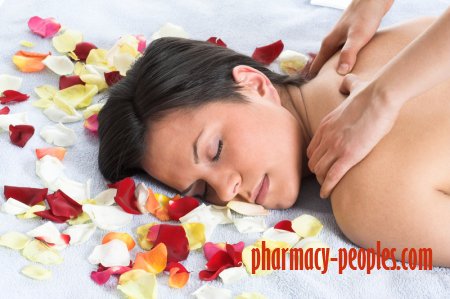LIVING WELL WITH ANXIETY (Natural & Herbal Anxiety Remedies)
12 Signs You May Have an Anxiety Disorder
Worried? Nervous? The distinction between anxiety disorders and "normal" anxiety isn't always clear.
What's normal?
Everyone gets nervous or anxious from time to time—when speaking in public, for instance, or when going through financial difficulty. For some people, however, anxiety becomes so frequent, or so forceful, that it begins to take over their lives.
How can you tell if your everyday anxiety has crossed the line into a disorder? It's not easy. Anxiety comes in many different forms—such as panic attacks, phobia, and social anxiety—and the distinction between an official diagnosis and "normal" anxiety isn't always clear.
Here's a start: If you experience any of the following symptoms on a regular basis, you may want to talk with your doctor.
Excessive worry
The hallmark of generalized anxiety disorder (GAD)—the broadest type of anxiety—is worrying too much about everyday things, large and small. But what constitutes "too much"?
In the case of GAD, it means having persistent anxious thoughts on most days of the week, for six months. Also, the anxiety must be so bad that it interferes with daily life and is accompanied by noticeable symptoms, such as fatigue.
Sleep problems
Trouble falling asleep or staying asleep is associated with a wide range of health conditions, both physical and psychological. And, of course, it's not unusual to toss and turn with anticipation on the night before a big speech or job interview.
Irrational fears
Some anxiety isn't generalized at all; on the contrary, it's attached to a specific situation or thing—like flying, animals, or crowds. If the fear becomes overwhelming, disruptive, and way out of proportion to the actual risk involved, it's a telltale sign of phobia, a type of anxiety disorder.
Muscle tension
Near-constant muscle tension—whether it consists of clenching your jaw, balling your fists, or flexing muscles throughout your body—often accompanies anxiety disorders. This symptom can be so persistent and pervasive that people who have lived with it for a long time may stop noticing it after a while.
Chronic indigestion
Anxiety may start in the mind, but it often manifests itself in the body through physical symptoms, like chronic digestive problems. Irritable bowel syndrome (IBS), a condition characterized by stomachaches, cramping, bloating, gas, constipation, and/or diarrhea.
Stage fright
Most people get at least a few butterflies before addressing a group of people or otherwise being in the spotlight. But if the fear is so strong that no amount of coaching or practice will alleviate it, or if you spend a lot of time thinking and worrying about it, you may have a form of social anxiety disorder (also known as social phobia).
People with social anxiety tend to worry for days or weeks leading up to a particular event or situation. And if they do manage to go through with it, they tend to be deeply uncomfortable and may dwell on it for a long time afterward, wondering how they were judged.
Self-consciousness
Social anxiety disorder doesn't always involve speaking to a crowd or being the center of attention. In most cases, the anxiety is provoked by everyday situations such as making one-on-one conversation at a party, or eating and drinking in front of even a small number of people.
In these situations, people with social anxiety disorder tend to feel like all eyes are on them, and they often experience blushing, trembling, nausea, profuse sweating, or difficulty talking. These symptoms can be so disruptive that they make it hard to meet new people, maintain relationships, and advance at work or in school.
Panic
Panic attacks can be terrifying: Picture a sudden, gripping feeling of fear and helplessness that can last for several minutes, accompanied by scary physical symptoms such as breathing problems, a pounding or racing heart, tingling or numb hands, sweating, weakness or dizziness, chest pain, stomach pain, and feeling hot or cold.
Not everyone who has a panic attack has an anxiety disorder, but people who experience them repeatedly may be diagnosed with panic disorder. People with panic disorder live in fear about when, where, and why their next attack might happen, and they tend to avoid places where attacks have occurred in the past.
Flashbacks
Reliving a disturbing or traumatic event—a violent encounter, the sudden death of a loved one—is a hallmark of post-traumatic stress disorder (PTSD), which shares some features with anxiety disorders. (Until very recently, in fact, PTSD was seen as a type of anxiety disorder rather than a stand-alone condition.)
Perfectionism
The finicky and obsessive mind-set known as perfectionism "goes hand in hand with anxiety disorders," Winston says. "If you are constantly judging yourself or you have a lot of anticipatory anxiety about making mistakes or falling short of your standards, then you probably have an anxiety disorder."
Compulsive behaviors
In order to be diagnosed with obsessive-compulsive disorder, a person's obsessiveness and intrusive thoughts must be accompanied by compulsive behavior, whether it's mental (telling yourself It'll be all right over and over again) or physical (hand-washing, straightening items).
Self-doubt
Persistent self-doubt and second-guessing is a common feature of anxiety disorders, including generalized anxiety disorder and OCD.
No one should have to live with anxiety. But anxiety isn't the type of condition you can simply cure on a whim. You need some type of treatment - a treatment that will break the effects of anxiety so that you can live a more relaxed and happier life.Some people turn to prescription medications, but mental health medicines have significant dangers and considerably addiction risk. That's why so many people want a way to treat anxiety naturally. Luckily, there are several options for curing anxiety that do not involve any type of prescription medication.
Herbal Therapies for Anxiety
Of course, when most people think of natural anxiety treatments, they think of herbal medicine, because herbal medicine is considered a natural way to "treat" different disorders. The good news is that there are many different herbal medicines for anxiety. However, always talk to your doctor before taking any type of herbal medicine, as some of them may interact with other medications. Never take any herbal medicine with alcohol. The most common types of herbs for anxiety include:
Kava
Kava is the king of natural anxiety treatments, and the only herb that has been favorably compared in scientific studies to some of the most well-known prescription anxiety treatments.Kava has an active ingredient known as kavalactones, which is believed to improve GABA levels and prevent epinephrine from overwhelming the body while leaving serotonin and other important neurotransmitters untouched.Kava is powerful enough that medical experts strongly advise avoiding any other type of herbal supplement or medicine for anxiety while taking kava, because the effects may become too strong and cause significant drowsiness and other side effects. Kava also interacts very strongly with alcohol in a way that can damage the liver, so no one that uses kava should consume any alcohol while on a kava supplement.Not all kava is created equal. Grocery story kava teas and droplets are unlikely to be powerful enough to provide you with the benefits you are looking for. Kava is fat soluble, meaning it needs to be taken with food or butter, and doses range anywhere from 150 to 300 kavalactones per day (far more than are generally supplied in grocery story varieties).But kava is also not believed to have any side effects when taken as directed, has no addiction risk, and no withdrawal symptoms. It's a great way to combat anxiety without the long term implications of benzodiazepines and other prescription anxiety treatments, and something you and your doctor may want to strongly consider.
Valerian Root
Valerian root is unlike kava, in that it doesn't have anxiolytic (anti-anxiety) effects necessarily, but it does provide relief from the symptoms and is believed to have fewer interactions than kava does.Valerian root is used as a sleep aid, and is generally not considered a natural treatment for anxiety. But the effects of valerian root are ideal for the type of symptoms that those with anxiety deal with, including muscle tension, a sense of agitation, and active thoughts. Valerian provides a level of relaxation that can help those with anxiety sleep more restfully as well. Since sleep is an incredibly important part of dealing with anxiety, this gives valerian additional benefits.
Passionflower
Passionflower is a very light version of kava, and recommended for those that are either not ready to commit to kava or do not experience that much daily anxiety and would prefer something less powerful.The ingredients in passionflower are said to have a very mild anxiolytic effect and sedative effect, which is believed to come from its role in GABA production and regulation. Passionflower has seen less research than kava and other available natural options, but it's used worldwide as an effective natural anxiety treatment option.
Magnesium
Magnesium is not an herb, but a mineral that is present in many foods. Unfortunately, millions of people have a very low level of magnesium intake, because it has been essentially stripped from most modern diets - especially in the United States and developed countries, where farming and food production practices eliminate the vital mineral from most food ingredients.Low levels of magnesium are rarely responsible for anxiety itself, but may be responsible for some of the physical symptoms of anxiety. Not only do low magnesium levels cause issues like unusual feelings throughout the body, but anxiety can actually decrease your magnesium levels (magnesium is burned up during times of stress).So taking magnesium at your doctor's discretion is a smart idea for many people that may find that their most distressing physical anxiety symptoms disappear, thus making it easier to cope with the mental part of anxiety.
Chamomile
If you have a jittery moment, a cuppa chamomile tea might help calm you down. Some compounds in chamomile (Matricaria recutita) bind to the same brain receptors as drugs like Valium.
You can also take it as a supplement, typically standardized to contain 1.2% apigenin (an active ingredient), along with dried chamomile flowers. In one study at the University of Pennsylvania Medical Center, in Philadelphia, patients with generalized anxiety disorder (GAD) who took chamomile supplements for eight weeks had a significant decrease in anxiety symptoms compared to patients taking placebo.
L-theanine (or green tea)
They say Japanese Buddhist monks could meditate for hours, both alert and relaxed. One reason may have been an amino acid in their green tea called L-theanine, says Mark Blumenthal, of the American Botanical Council.
Research shows that L-theanine helps curb a rising heart rate and blood pressure, and a few small human studies have found that it reduces anxiety. In one study, anxiety-prone subjects were calmer and more focused during a test if they took 200 milligrams of L-theanine beforehand.
You can get that much L-theanine from green tea, but you'll have to drink many cups—as few as five, as many as 20.
Hops
Yes, it's in beer, but you won't get the tranquilizing benefits of the bitter herb hops (Humulus lupulus) from a brew. The sedative compound in hops is a volatile oil, so you get it in extracts and tinctures—and as aromatherapy in hops pillows.
Lemon balm
Named after the Greek word for "honey bee," lemon balm (Melissa officinalis), has been used at least since the Middle Ages to reduce stress and anxiety, and help with sleep. In one study of healthy volunteers, those who took standardized lemon balm extracts (600 mg) were more calm and alert than those who took a placebo.
While it's generally safe, be aware that some studies have found that taking too much can actually make you more anxious. So follow directions and start with the smallest dose. Lemon balm is sold as a tea, capsule, and tincture. It's often combined with other calming herbs such as hops, chamomile, and valerian.
Lavender
The intoxicating (but safe) aroma of lavender (Lavandula hybrida) may be an "emotional" anti-inflammatory. In one study, Greek dental patients were less anxious if the waiting room was scented with lavender oil. In a Florida study, students who inhaled lavender oil scent before an exam has less anxiety—although some students said it made their minds "fuzzy" during the test.
In one German study, a specially formulated lavender pill (not available in the U.S.) was shown to reduce anxiety symptoms in people with Generalized Anxiety Disorder (GAD) as effectively as lorazepam (brand name: Ativan), an anti-anxiety medication in the same class as Valium.
Eat omega-3s
You know fish oils are good for the heart, and perhaps they protect against depression. Add anxiety to the list. In one study, students who took 2.5 milligrams a day of mixed omega-3 fatty acids for 12 weeks had less anxiety before an exam than students taking placebo.
Experts generally recommend that you get your omega-3s from food whenever possible. Oily, cold-water fishes like salmon are the best sources of the fatty acids; a six-ounce piece of grilled wild salmon contains about 3.75 grams.
Other good choices: anchovies, sardines, and mussels.
Other Natural Treatment Anxiety Options
The above herbal supplements are not the only natural options available. There are many other types of alternative anxiety options as well. A brief rundown includes:
Homeopathic Remedies
Homeopathy is an often misunderstood alternative treatment. It's the belief that a very, very diluted amount of elements that cause a condition like anxiety can cure it. Homeopathic experts believe that diluting things like arsenic and nicotine, among other things, to the point where only the smallest amount of the element remains will cure it. There is little evidence that homeopathic remedies work, but they remain popular nonetheless.
Reflexology
Reflexology is the belief that pressure to certain points on the hand can relieve stress in the rest of the body. Reflexologists utilize these pressure points in a way that many believe has a very calming effect for all types of stresses.
Magnet Therapy
Another interesting form of therapy is magnet therapy, also known as magnetotherapy. Magnet therapy believes that placing various magnets on your body will move elements around and provide you with therapeutic properties.
Other natural treatment remedies include aromatherapy, acupressure, Reiki, and more. There is no limit to the number of natural treatments that currently exist in the world today.Many of these natural treatments for anxiety have never been researched. Generally, it is best to commit to a well-studied treatment, because your anxiety is not something to leave to chance. Nevertheless, many people support the use of the above treatment types, and so those that want to try an alternative treatment have their pick of many interesting and unique therapy options.
